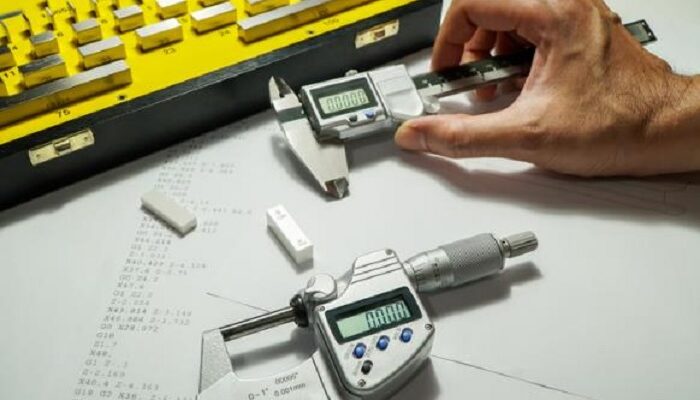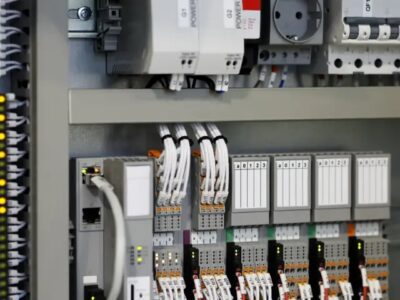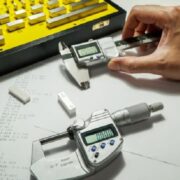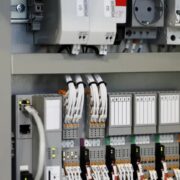
The Importance of Industrial Metrology
Industrial metrology is a crucial aspect of manufacturing processes across various industries. It involves the measurement, analysis, and management of physical quantities and their relationships to ensure the highest level of precision and accuracy in the production of goods. The importance of industrial metrology can be understood through its impact on several key areas:
- Enhancing Product Quality
Industrial metrology plays a pivotal role in enhancing product quality by ensuring that manufactured items meet the required specifications and tolerances. Accurate measurements are essential to identify any deviations from the desired standards, enabling timely corrective actions to be taken. By maintaining consistency in product dimensions and characteristics, industrial metrology helps to prevent defects, reduce waste, and improve overall customer satisfaction.
- Ensuring Compliance and Standards
Compliance with industry standards and regulations is a fundamental requirement for manufacturers. Industrial metrology provides the necessary tools and techniques to verify and certify that products meet the required standards and comply with relevant regulations. This is particularly crucial in industries such as automotive, aerospace, and medical, where safety and regulatory compliance are paramount.
- Improving Efficiency and Productivity
Efficiency and productivity are key drivers of success in manufacturing operations. Industrial metrology aids in optimizing processes by identifying areas of improvement, reducing measurement uncertainties, and minimizing downtime associated with rework or scrap. By implementing well-designed metrology systems and strategies, manufacturers can streamline their operations, increase throughput, and achieve higher levels of productivity.
The Evolution of Industrial Metrology Technology
Industrial metrology has undergone significant advancements over the years, driven by technological innovations and industry demands. These advancements have revolutionized the way measurements are made and have led to improved accuracy, efficiency, and automation. Let’s explore some key aspects of the evolution of industrial metrology technology:
- From Manual to Automated Measurements
In the past, industrial metrology relied heavily on manual measurements, which were time-consuming and prone to human errors. However, with the advent of automation and computer-aided technology, measurements can now be performed faster, more accurately, and with reduced operator intervention. Automated metrology systems, such as coordinate measuring machines (CMMs) and optical measurement systems, have replaced manual measurement tools, enabling manufacturers to achieve higher levels of precision and efficiency.
- The Role of Artificial Intelligence in Metrology
Artificial intelligence (AI) has emerged as a game-changer in various industries, and metrology is no exception. AI-powered metrology systems have the ability to analyze complex data sets, detect anomalies, and make intelligent decisions based on the collected information. This enables manufacturers to gain valuable insights, optimize processes, and improve overall quality control. AI algorithms can also be used to predict measurement outcomes, reducing the need for physical measurements and saving time and resources.
- Advancements in Non-Contact Measurement Systems
Non-contact measurement systems have gained tremendous popularity in industrial metrology due to their ability to measure objects without physical contact. These systems utilize technologies such as laser scanning, optical interferometry, and structured light projection to capture precise measurements of complex surfaces and geometries. Non-contact measurement systems offer numerous advantages, including faster measurement times, non-destructive testing, and the ability to capture data from hard-to-reach areas. This makes them highly suitable for applications in industries such as automotive, aerospace, and electronics manufacturing.
The Applications of Industrial Metrology
The applications of industrial metrology span across a wide range of industries, each with unique requirements and challenges. Let’s explore some key areas where industrial metrology plays a vital role:
- Automotive Industry: Ensuring Safety and Precision
In the automotive industry, precision and safety are of utmost importance. Industrial metrology is crucial in ensuring that automotive components and assemblies meet strict quality standards, including dimensional accuracy, surface finish, and functionality. From engine parts to body panels, metrology systems are used throughout the manufacturing process to identify defects, verify tolerances, and ensure the overall safety and reliability of vehicles.
- Aerospace Industry: Enabling Flawless Engineering
The aerospace industry demands the highest levels of precision and reliability in its components and systems. Industrial metrology plays a critical role in the aerospace sector by enabling manufacturers to achieve the exacting tolerances required for aircraft parts. Metrology systems are used during the design, manufacturing, and maintenance stages to ensure the accurate assembly of complex structures, such as wings, turbine blades, and landing gear. This helps to enhance fuel efficiency, reduce maintenance costs, and ensure the safety of passengers and crew.
- Medical Industry: Paving the Way for Life-Saving Innovation
Accuracy and precision are paramount in the medical industry, where even the smallest error can have significant consequences. Industrial metrology is used extensively in the production of medical devices, implants, and instruments to ensure their dimensional accuracy, functionality, and biocompatibility. From orthopedic implants to surgical instruments, metrology systems enable manufacturers to meet strict regulatory requirements, improve patient outcomes, and drive innovation in the field of healthcare.
The Future of Industrial Metrology
The field of industrial metrology is constantly evolving, driven by emerging technologies and evolving industry needs. Here are some key trends and developments that are shaping the future of industrial metrology:
- Industry 4.0: Integration of Metrology and Digitalization
Industry 4.0, also known as the fourth industrial revolution, is characterized by the integration of digital technologies into industrial processes. In the context of metrology, this involves the seamless integration of metrology systems with other manufacturing systems and processes, such as computer-aided design (CAD), computer-aided manufacturing (CAM), and enterprise resource planning (ERP) systems. This integration enables real-time data exchange, improved process control, and better decision-making, ultimately leading to enhanced product quality and overall manufacturing efficiency.
- Miniaturization and Micro-Metrology
The trend towards miniaturization in various industries, such as electronics and medical devices, presents unique challenges for metrology. As components become smaller and more complex, traditional metrology techniques may no longer be suitable. Micro-metrology, which involves the measurement of microscopic features and structures, is becoming increasingly important. Advances in technologies such as scanning electron microscopy (SEM), atomic force microscopy (AFM), and optical microscopy are enabling precise measurements at the micro and nanoscale, driving innovation in industries that require highly miniaturized components.
- Metrology in Additive Manufacturing: A Paradigm Shift
Additive manufacturing, also known as 3D printing, is revolutionizing the manufacturing industry by enabling the production of complex geometries and customized components. However, ensuring the dimensional accuracy and quality of 3D-printed parts poses significant challenges. Metrology plays a crucial role in validating the accuracy and integrity of additive manufacturing processes, including the characterization of materials, verification of printed parts, and identification of defects. As additive manufacturing continues to evolve, the integration of metrology into the process chain will be essential for quality assurance and process optimization.
Industrial metrology is a fascinating field that combines precision engineering, advanced technologies, and meticulous measurements. As manufacturing processes become increasingly complex and demanding, the role of industrial metrology will continue to grow in importance. By embracing technological advancements, exploring new applications, and adapting to emerging trends, manufacturers can leverage the power of metrology to achieve the highest levels of precision, quality, and efficiency.
FAQ
Question: What is industrial metrology? – Industrial metrology involves the measurement, analysis, and management of physical quantities and their relationships to ensure precision and accuracy in the production of goods.
Question: How does industrial metrology enhance product quality? – Industrial metrology ensures that manufactured items meet the required specifications and tolerances, preventing defects, reducing waste, and improving customer satisfaction.
Question: What is the role of industrial metrology in ensuring compliance and standards? – Industrial metrology provides tools and techniques to verify and certify that products meet industry standards and comply with regulations, especially in industries like automotive, aerospace, and medical.
Question: In what ways does industrial metrology improve efficiency and productivity? – Industrial metrology identifies areas of improvement, reduces measurement uncertainties, and minimizes downtime associated with rework or scrap, leading to streamlined operations, increased throughput, and higher productivity.
Question: What advancements have been made in industrial metrology technology? – Advancements include automation, artificial intelligence, and non-contact measurement systems that have improved accuracy, efficiency, and automation in the field.
Question: What are some applications of industrial metrology? – Industrial metrology plays a vital role in industries such as automotive (ensuring safety and precision), aerospace (enabling flawless engineering), and medical (paving the way for life-saving innovation).
Question: What is the future of industrial metrology? – The future involves the integration of metrology and digitalization (Industry 4.0), miniaturization and micro-metrology, and the application of metrology in additive manufacturing.
Question: How is metrology used in additive manufacturing? – Metrology plays a crucial role in validating the accuracy and integrity of additive manufacturing processes, ensuring dimensional accuracy, verifying printed parts, and identifying defects.
Useful Resources:










